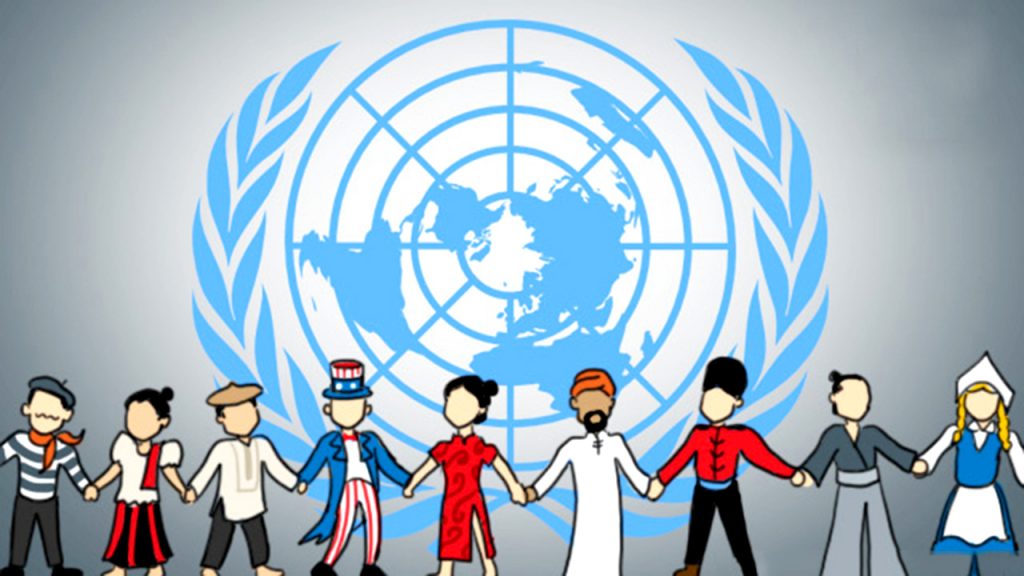Shortly after the end of World War II, United Nations was formed with the objective of resolving international conflicts without war and to frame policies on international issues. However, the UN’s role also has time and again come under the scanner since its inception. Ahead of the worldwide celebration of UN Day, Orissa POST speaks to a few youngsters to get their views on whether the world body has succeeded in its purpose.
Amlan Mishra, who is pursuing a post-graduation course in Political Science at the University of Delhi, says, “Although the UN has so far successfully kept WW-III at bay unlike its failed predecessor League of Nations, the failures in other fronts outweigh the success of the global peacekeeper. The initial order of the UN gave an upper hand to the then super-powers in policy making and world politics. More than seven decades later, when the world has witnessed enormous change in world politics, the permanent members still lay siege to the Security Council.”
“Forget the critics, even the proponents of United Nations also question its relevance as there have been no consequences for violating Security Council resolutions. The ethnic cleansing and genocide during Bangladesh War, Srebrenica Massacre and War in Darfur are a case in point,” he adds.
Outlining the aspect, Mishra says, “Even after decades of UN policy-making, the Israel-Palestine conflict and the Syrian civil war stare the UN in the eye. But blaming the organisation alone will be unfair without considering the fact that the basic presupposition of a world, ordered by states, is no longer true.”
Sambit Nandi, an electronics and electrical engineer, says, “About 70 years ago when most of the nations were in ruins following the WW-II, the United Nations was formed and its founders had envisioned lasting peace across the globe. It has succeeded to some extent so far as development and humanitarian assistance are concerned. But its inability in preventing violence in several parts of the world has always made headlines.”
Citing an example, he says, “In 1994, a UN peacekeeping troop was sent to Rwanda to check violence but it couldn’t prevent the genocide since the troop was too small in size. Approximately, 10 lakh people had died in this small African country. Similarly, the UN was severely criticised for its failure in preventing the genocide committed by Pakistan Army during Bangladesh Liberation War in 1971. There is a need for greater coordination between the member nations to prevent such tragedy,” adds Nandi.
Homemaker Priyanka Baisakh, a native of Bhubaneswar, who now lives in Bangalore, has no expectations from the world peacekeeper as she says the UNSC addresses the strategic interests and political motives of its permanent members.
“UN protected the oil-rich Kuwait against an Iraqi attack in 1991 but gave a lukewarm response to the resource-poor Rwanda in 1997,” she adds.
Priyanka also says that the five permanent members of UNSC – Russia, France, China, the United Kingdom and the United States – all nuclear powers, have formed a club to help each other undermine the interest of the non-Security Council members. She is also critical of the veto power and considers it undemocratic. “This prevents UN’s action against war crimes and crimes against humanity,” she adds.
Among the critics, there are many who hail the role of UN in maintaining international stability. Sujal Swain, a Plus II student of Sai International School, Bhubaneswar, is one of them. Listing a few achievements, he says, “The UN not only resolved the Congo crisis in 1960, it also helped in restoring peace in Lebanon in 1978 by having the Israeli forces which had occupied the area withdraw.
UN also scripted a major success in ending Salvadoran Civil War in EI Salvador. This apart, had it not imposed its rules and regulations stipulated in the United Nations Convention on the Law of the Sea (UNCLOS), The South China Sea crisis would have led to a major conflict in the region,” says Swain.
He also appreciates UN’s policies on issues such as climate change, poverty, health, education and unemployment among others.
BIJAY MANDAL, OP

